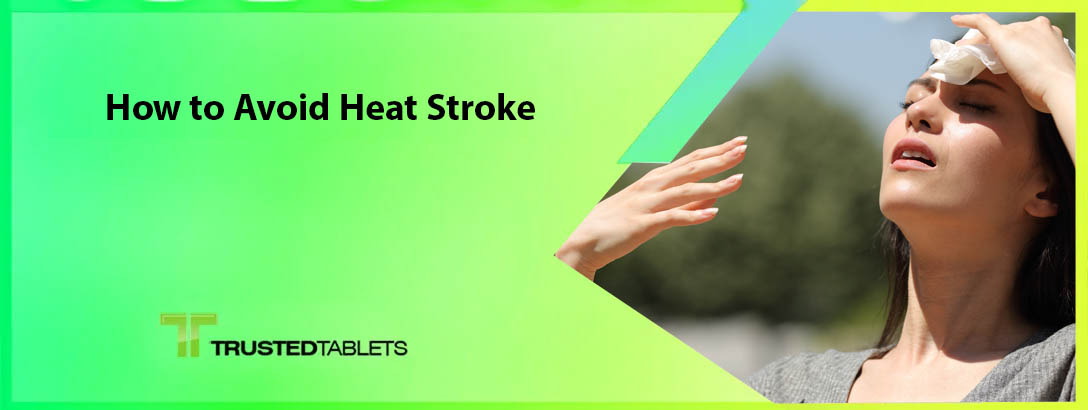Heat stroke is a serious condition that can occur when your body overheats, often due to prolonged exposure to high temperatures. Here’s a comprehensive guide on how to prevent heat stroke and stay safe in hot weather:
Understand Heat Stroke
What is Heat Stroke?
Heat stroke is the most severe form of heat-related illness, characterized by a body temperature of 104°F (40°C) or higher. It requires immediate medical attention as it can damage the brain and other vital organs.
Symptoms of Heat Stroke
- High body temperature
- Altered mental state or behavior
- Nausea and vomiting
- Flushed skin
- Rapid breathing
- Racing heart rate
- Headache
- Dizziness
Risk Factors for Heat Stroke
Factors that Increase Risk
- High Temperatures: Excessive heat and humidity increase the likelihood of heat stroke.
- Strenuous Activity: Engaging in vigorous physical activity in hot weather without adequate hydration.
- Age: Infants, children under 4, adults over 65, and individuals with chronic illnesses are at higher risk.
- Medications: Some medications can affect your body’s ability to regulate temperature.
- Lack of Acclimatization: Not being accustomed to hot weather, especially after a period of cooler weather.
Prevention Tips
Stay Hydrated
- Drink plenty of water throughout the day, even if you don’t feel thirsty. Avoid beverages with caffeine or alcohol, as they can contribute to dehydration.
Dress Appropriately
- Wear lightweight, loose-fitting clothing in light colors to reflect heat and sunlight. Use a wide-brimmed hat and sunglasses for additional protection.
Limit Outdoor Activity
- Schedule outdoor activities during cooler times of the day, such as early morning or evening. Take breaks in shaded or air-conditioned areas.
Use Sunscreen
- Apply sunscreen with SPF 30 or higher to protect your skin from sunburn, which can impair your body’s ability to cool itself.
Cool Your Environment
- Use fans, air conditioning, or cool showers to lower your body temperature. Avoid using electric fans when the temperature is above 95°F (35°C) as they may not be effective.
Monitor Those at Risk
- Check on infants, young children, elderly relatives, and those with chronic illnesses regularly during hot weather. Ensure they are staying hydrated and cool.
Know the Signs
- Recognize the symptoms of heat-related illnesses, including heat stroke, and take immediate action if someone shows signs of distress.
Summary Table
| Prevention Tip | Description |
|---|---|
| Stay Hydrated | Drink plenty of water throughout the day, avoiding caffeinated or alcoholic beverages. |
| Dress Appropriately | Wear loose, lightweight clothing in light colors, and protect your head with a hat. |
| Limit Outdoor Activity | Schedule outdoor activities during cooler parts of the day and take frequent breaks. |
| Use Sunscreen | Apply sunscreen with SPF 30 or higher to protect against sunburn and heat-related skin damage. |
| Cool Your Environment | Use fans, air conditioning, or cool showers to lower body temperature indoors. |
| Monitor Those at Risk | Keep an eye on infants, elderly, and individuals with chronic illnesses for signs of heat-related stress. |
| Know the Signs | Recognize symptoms of heat stroke and other heat-related illnesses for prompt intervention. |
FAQ
How do I know if someone has heat stroke?
Signs of heat stroke include high body temperature, altered mental state, nausea, flushed skin, rapid breathing, and a racing heart rate. Seek medical help immediately if these symptoms occur.
What should I do if someone has heat stroke?
Move them to a cooler place, remove excess clothing, and apply cool, wet cloths or ice packs to their skin. Fan their body and encourage them to drink cool fluids if they are conscious. Seek emergency medical assistance promptly.
Can medications increase the risk of heat stroke?
Yes, certain medications, such as diuretics, beta-blockers, and antihistamines, can impair the body’s ability to regulate temperature and increase the risk of heat-related illnesses.
How can I prevent heat stroke while exercising outdoors?
Exercise during cooler times of the day, stay hydrated, wear light clothing, and take breaks in shaded or air-conditioned areas. Listen to your body and stop if you feel dizzy, lightheaded, or overly fatigued.
Is it safe to leave children or pets in a parked car?
No, never leave children, elderly, or pets in a parked car, even with the windows cracked. Temperatures inside a car can rise rapidly, leading to heat stroke and even death.


